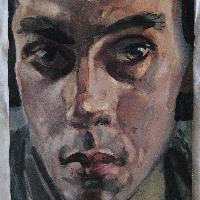This ad-hoc collection was separated from the fonds of judicial files concerning persons subject to political repression during the communist regime which is currently stored in the Archive of the Intelligence and Security Service of the Republic of Moldova (formerly the KGB Archive). It focuses on the case of Gheorghe Zgherea, a person of peasant background who was a member of the Inochentist religious community, a millenarian and eschatological movement active in Bessarabia and Transnistria mostly during the first half of the twentieth century. The collection materials are revealing for the repressive policy of the Soviet regime in the religious sphere, showing the Soviet authorities’ hostile attitude toward non-mainstream and marginal denominations, which were perceived as a particularly serious threat. Zgherea, a preacher within his community starting from late 1950, was accused of “roaming the villages” of the Moldavian SSR and spreading “anti-Soviet ideas” among the local populace by “using their religious prejudices.” Arrested on 2 May 1953, he received a harsh sentence of twenty-five years of hard labour. His sentence was reduced to five years of hard labour in June 1955, when he was also amnestied according to a special decree of March 1953. Zgherea’s case thus points to the changing strategies of the regime applied after Stalin’s death, but also to the continuity of repression and to the shifting practices of stifling dissent in post-Stalinist Soviet society.
-
Hely:
-
Chișinău Bulevardul Ștefan cel Mare și Sfînt 166, Moldova 2004
-
Téma:
-
Ajánlott tétel:
Gino Hahnemann was an East German
Bohemian active in the independent literary, art, film, and most notably, LGBT communities of the 1980s. He contributed to the alternative milieu of the GDR as an author, photographer, set designer and filmmaker.
Hahnemann was one of the first and few authors in the GDR to openly write about private homosexual experiences. His estate is preserved by the Academy of Arts in Berlin.
-
Hely:
-
10115 Berlin Robert-Koch-Platz 10 , Germany
-
Téma:
-
Alapítás ideje:
-
Ajánlott tétel:
The digital photography collection of Harald Hauswald was acquired at the end of 2017 by the Federal Foundation for the Reappraisal of the SED Dictatorship. It represents a valuable collection from one of the most significant photographers from the GDR. Hauswald’s snapshots from everyday life in East Berlin provide insight into a bygone era, and which acquired public acclaim and support following the toppling of the regime in 1990. The current collection is in the process to be expanded and by the end of 2019 is expected to include the photographer’s entire life work in digitalized form.
-
Hely:
-
10117 Berlin Kronenstraße 5
-
Téma:
-
Alapítás ideje:
-
Ajánlott tétel:
The large collection of different works of art belonging to the artist Heldur Viires reflects the activities of the Tartu Circle, a group of artists in Tartu. Some of these artists, including Viires himself, were sent to a prison camp in 1949. The Tartu Circle used the picturesque style, which opposed the Soviet view of art. In this way, young artists in the group resisted the strict rules of Socialist Realism.
-
Hely:
-
Tartu Raekoja plats 8, Estonia 51003
-
Téma:
-
Alapítás ideje:
-
Ajánlott tétel:
The Herta Müller Ad-hoc Collection at CNSAS focuses on the case of the Romanian-born German writer Herta Müller and the way in which the Romanian secret police, the Securitate, monitored the development of her cultural opposition towards the communist regime. The documents of the collection show that Herta Müller came to the unwanted attention of the Securitate as her writings shed a negative light on “socialist reality” and they intensified their informative surveillance of her as her prose reached a larger and more international audience.
-
Hely:
-
București Strada Matei Basarab 55, Romania 030167
-
Téma:
-
Ajánlott tétel:





